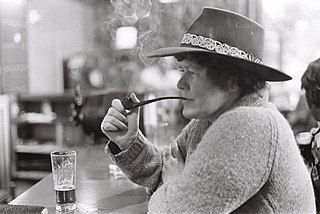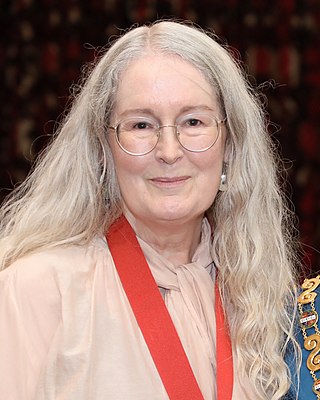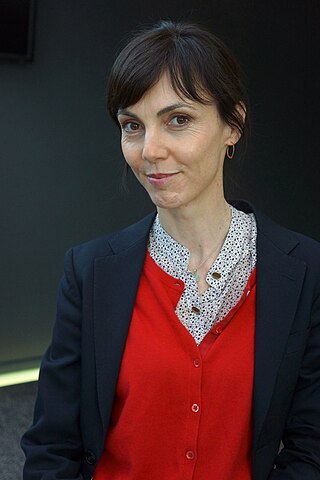Related Research Articles
Victoria University of Wellington is a public research university in Wellington, New Zealand. It was established in 1897 by Act of Parliament, and was a constituent college of the University of New Zealand.

New Zealand literature is literature, both oral and written, produced by the people of New Zealand. It often deals with New Zealand themes, people or places, is written predominantly in New Zealand English, and features Māori culture and the use of the Māori language. Before the arrival and settlement of Europeans in New Zealand in the 19th century, Māori culture had a strong oral tradition. Early European settlers wrote about their experiences travelling and exploring New Zealand. The concept of a "New Zealand literature", as distinct from English literature, did not originate until the 20th century, when authors began exploring themes of landscape, isolation, and the emerging New Zealand national identity. Māori writers became more prominent in the latter half of the 20th century, and Māori language and culture have become an increasingly important part of New Zealand literature.

Catherine Chidgey is a New Zealand novelist, short-story writer and university lecturer. She has published eight novels. Her honours include the inaugural Prize in Modern Letters; the Katherine Mansfield Fellowship to Menton, France; Best First Book at both the New Zealand Book Awards and the Commonwealth Writers' Prize ; the Acorn Foundation Fiction Prize at the Ockham New Zealand Book Awards on two occasions; and the Janet Frame Fiction Prize.

Keri Ann Ruhi Hulme was a New Zealand novelist, poet and short-story writer. She also wrote under the pen name Kai Tainui. Her novel The Bone People won the Booker Prize in 1985; she was the first New Zealander to win the award, and also the first writer to win the prize for a debut novel. Hulme's writing explores themes of isolation, postcolonial and multicultural identity, and Māori, Celtic, and Norse mythology.

Patricia Frances Grace is a New Zealand writer of novels, short stories, and children's books. She began writing as a young adult, while working as a teacher. Her early short stories were published in magazines, leading to her becoming the first female Māori writer to publish a collection of short stories, Waiariki, in 1975. Her first novel, Mutuwhenua: The Moon Sleeps, followed in 1978.

William Manhire is a New Zealand poet, short story writer, emeritus professor, and New Zealand's inaugural Poet Laureate (1997–1998). He founded New Zealand's first creative writing course at Victoria University of Wellington in 1975, founded the International Institute of Modern Letters in 2001, and has been a strong promoter of New Zealand literature and poetry throughout his career. Many of New Zealand's leading writers graduated from his courses at Victoria. He has received many notable awards including a Prime Minister's Award for Literary Achievement in 2007 and an Arts Foundation Icon Award in 2018.

Elizabeth Fiona Knox is a New Zealand writer. She has authored several novels for both adults and teenagers, autobiographical novellas, and a collection of essays. One of her best-known works is The Vintner's Luck (1998), which won several awards, has been published in ten languages, and was made into a film of the same name by Niki Caro in 2009. Knox is also known for her young adult literary fantasy series, Dreamhunter Duet. Her most recent novels are Mortal Fire and Wake, both published in 2013, and The Absolute Book, published in 2019.

Emily Justine Perkins is a New Zealand novelist, short story writer, playwright and university lecturer. Over the course of her career Perkins has written five novels, one collection of short stories and two plays. She has won a number of notable literary awards, including twice winning the top award for fiction at the New Zealand Book Awards. In 2011 she received an Arts Foundation of New Zealand Laureate Award.

Donna Tusiata Avia is a New Zealand poet and children's author. She has been recognised for her work through receiving a 2020 Queen's Birthday Honour and in 2021 her collection The Savage Coloniser won the Mary and Peter Biggs Award for Poetry at the Ockham New Zealand Book Awards. The Savage Coloniser and her previous work Wild Dogs Under My Skirt have been turned into live stage plays presented in a number of locations.

Eleanor Catton is a New Zealand novelist and screenwriter. Born in Canada, Catton moved to New Zealand as a child and grew up in Christchurch. She completed a master's degree in creative writing at the International Institute of Modern Letters. Her award-winning debut novel, The Rehearsal, written as her Master's thesis, was published in 2008, and has been adapted into a 2016 film of the same name. Her second novel, The Luminaries, won the 2013 Booker Prize, making Catton the youngest author ever to win the prize and only the second New Zealander. It was subsequently adapted into a television miniseries, with Catton as screenwriter. In 2023, she was named on the Granta Best of Young British Novelists list.

Briar Grace-Smith is a screenwriter, director, actor, and short story writer from New Zealand. She has worked as an actor and writer with the Maori theatre cooperative Te Ohu Whakaari and Maori theatre company He Ara Hou. Early plays Don't Call Me Bro and Flat Out Brown, were first performed at the Taki Rua Theatre in Wellington in 1996. Waitapu, a play written by Grace-Smith, was devised by He Ara Hou and performed by the group on the Native Earth Performing Arts tour in Canada in 1996.
Mīria George is a New Zealand writer, producer and director of Māori and Cook Island descent. Best known for being the author of award-winning stage plays, George has also written radio, television and poetry, and was one of the film directors of the portmanteau film Vai. In November 2005, she won the Emerging Pacific Artist's Award at the Arts Pasifika Awards. Mīria George was the first Cook Islands artist to receive the Fulbright-Creative New Zealand Pacific Writer's Residency at the University of Hawai'i.
Pip Adam is a novelist, short story writer, and reviewer from New Zealand.

Tina Makereti is a New Zealand novelist, essayist, and short story writer, editor and creative writing teacher. Her work has been widely published and she has been the recipient of writing residencies in New Zealand and overseas. Her book Once Upon a Time in Aotearoa won the inaugural fiction prize at the Ngā Kupu Ora Māori Book Awards in 2011, and Where the Rēkohu Bone Sings won the Ngā Kupu Ora Aotearoa Māori Book Award for Fiction in 2014.

Catherine Robertson is a New Zealand novelist, reviewer, broadcaster and bookshop owner.
Laurence Fearnley is a New Zealand short-story writer, novelist and non-fiction writer. Several of her books have been shortlisted for or have won awards, both in New Zealand and overseas, including The Hut Builder, which won the fiction category of the 2011 NZ Post Book Awards. She has also been the recipient of a number of writing awards and residencies including the Robert Burns Fellowship, the Janet Frame Memorial Award and the Artists to Antarctica Programme.

Ingrid Horrocks is a creative writing teacher, poet, travel writer, editor and essayist. She lives in Wellington, New Zealand.
Rose Lu is a New Zealand writer and software developer. Her book All Who Live on Islands is a series of autobiographic essays sharing her experience of growing up as a Chinese person in New Zealand and has been acclaimed as "an intimate and confident view of New Zealand life through the eyes of an Asian immigrant". In 2018, she was a recipient of the Creative Nonfiction Prize at the International Institute of Modern Letters. She has a bachelor's degree in mechatronics engineering from University of Canterbury and a master's degree in creative writing from Victoria University of Wellington.
Michalia Arathimos is a Greek–New Zealand writer. She has held several writers' residencies in New Zealand, and received several awards for her short stories. Her debut novel, Aukati, was published in 2017.
Kirsten McDougall is a New Zealand novelist, short story writer and creative writing lecturer. She has published three novels, and won the 2021 Sunday Star-Times short story competition.
References
- ↑ Kaho, Simone (2 July 2022). "'Maybe that's why it took so long' : Cook Island writer's first book balances realness and representation". TP+. Archived from the original on 13 August 2022. Retrieved 16 July 2023.
- ↑ "Interview with Maria Samuela". Christchurch City Libraries . 15 May 2023. Archived from the original on 15 May 2023. Retrieved 15 May 2023.
- 1 2 "Getting to Know Maria Samuela". www.vicbooks.co.nz. 15 May 2023. Archived from the original on 15 May 2023. Retrieved 15 May 2023.
- ↑ "Roll of graduates". Victoria University of Wellington . Retrieved 19 July 2023.
- ↑ "Maria Samuela (Writing for the Page, 2017)". Victoria University of Wellington . 15 May 2023. Archived from the original on 15 May 2023. Retrieved 15 May 2023.
- ↑ "What I'm reading Maria Samuela". Sunday Star-Times . 27 March 2022. ProQuest 2643266368.
- ↑ "2022 CLNZ/NZSA $5,000 Research Grants awarded to four New Zealand writers". Copyright Licensing New Zealand. Archived from the original on 17 July 2023. Retrieved 16 July 2023.
- ↑ "Cook Islands author gets $5000 research grant". Cook Islands News . 2 September 2022. Archived from the original on 6 October 2022. Retrieved 15 July 2023.
- ↑ "Arts – Four cash grants awarded to support local writers". LiveNews.co.nz. 26 August 2022. ProQuest 2706344763.
- ↑ Brown-Pereira, Audrey (6 March 2022). "Beats of the Pa'u: stories of Aotearoa, land of watered-down milk and honey". The Spinoff . Archived from the original on 24 February 2023. Retrieved 16 July 2023.